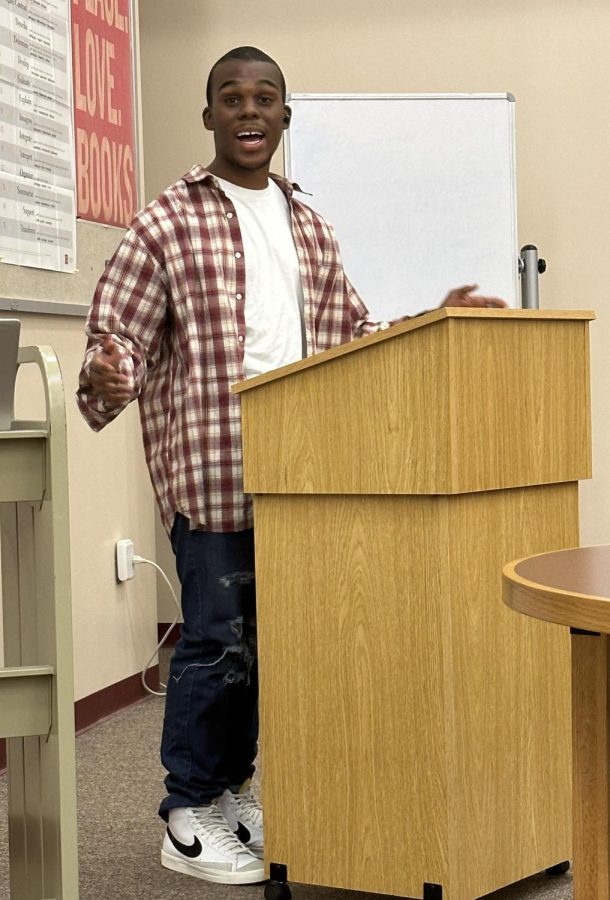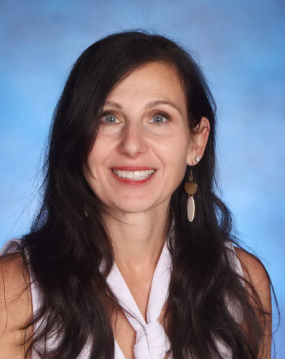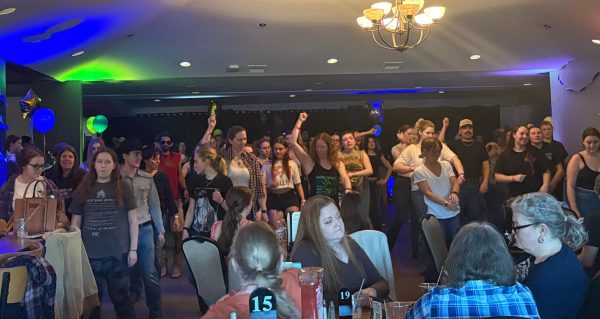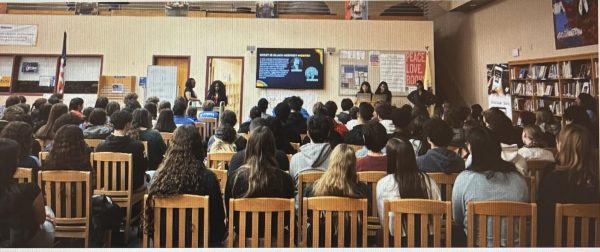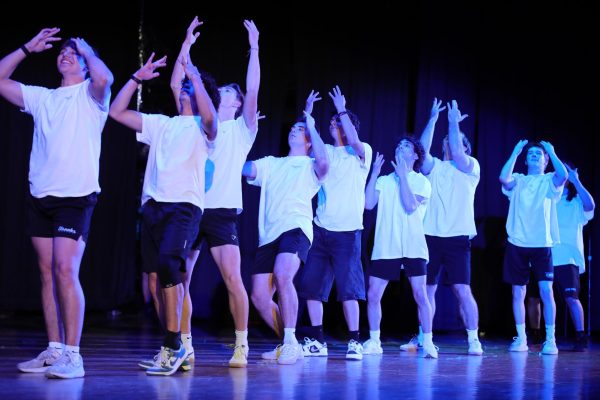Library Hosts 7th Annual Poetry Slam
The Warren Hills library hosted their seventh annual Poetry Slam in December, for members of the school to come together and bond over poetry. During each of the three lunches, students and staff were invited up to the podium to share poems that they had written or that meant something to them.
The event was hosted by Librarians Margaret Devine and Bela Shah. Devine, who opened and introduced the event, described the poetry slam as a way “…to celebrate the spoken word and the diverse stories that students create within poetry. It helps students to see commonalities within their differences.”
The stories shared during the event were exactly that— diverse.
Junior Tyrik Iman-Washington’s poem, “What Would I Be If I Wasn’t Me,” told the story of his upbringing and how it shaped who he is now:
What if I didn’t grow up
with young black youth
If I didn’t go to
the rallies and protests
If I didn’t scream for change
or witness social unrest
Would I feel as if
my voice was suppressed?
Would I be confused
questioning my identity
or trying to find peace
in a world full of insanity
Freshman Amelia Roberto’s poem, “A Voice More Than Words,” told a different story with a similar theme, about how being a lifelong dancer helped her change and grow.
My whole life,
I’ve been learning to speak.
Not through words,
But through dance.
Other poems differed completely. Junior Josue Alvarez, for example, told a story that was much less literal than some of the others, in his poem titled, “Homeless:”
I started singing tangos
when I was fifteen
The language of flowers,
The moon, the heart, the star
The man who talked
with spiders.
The world was never so mean
until he silenced my words.
The rest of the poems, read by staff and students from all grades, each told a different story, reflecting what was meaningful to each author.
Just as each poem has a different meaning, poetry itself means something different to everyone at Warren Hills and beyond.
In Devine’s eyes, “poetry is important because it relies on the economy of language and is at the root of all song and expression. It creates connectivity.”
To Iman-Washington, poetry has a more personal meaning.
“Poetry is my outlet, where I can express myself and escape the world around me,” he said. “It’s my coping mechanism.”
For Alvarez, poetry is about connection.
“I like to share my poetry because I believe that someone could connect with it. I believe that poetry, like any other form of artistic expression, is something that unites people, from simple things, like creating friendships, to uniting entire crowds for a cause or meaning.”
Regardless of the intention, the Poetry Slam always connects Warren Hills for a day. As Shah described it: “The poetry slam was amazing, there was a great turnout of students and staff, with a respectful and wonderful audience.”

